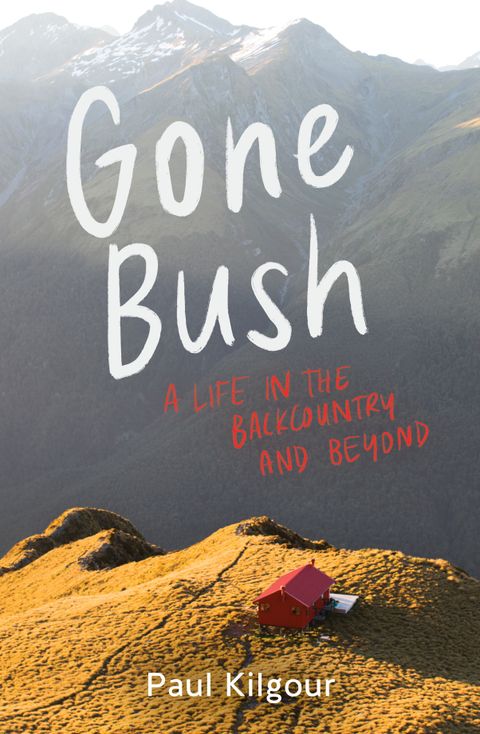author
Jacques Lawinski
post
- 31/12/2022
- No Comments
- Reviews
share
GONE BUSH by Paul Kilgour
Harper Collins Publishers, 2021.
Easy summer read, great for a couple of sunny afternoons at the beach.

Gone Bush is Paul Kilgour’s memoir to his many years in the back country of New Zealand. He recounts the stories of how he’s “bagged” (slept in) at least 1208 huts in both New Zealand and overseas. He’s also written a good section about his tramp from Puysegur Point at the bottom of the South Island, to Golden Bay at the top of the South Island where he lives.
Paul writes with honesty and friendliness, and opens up to us about both the exhilarating parts of tramping through the country, but also the struggles, the tribulations, and the things that have changed both for him, and for the country he’s walked through. Traversing the mountains with Paul as he recounts the characters he’s met along the way, and the incredible hospitality of New Zealanders, offers a meditative insider’s look into what it’s like to be walking for days on end.
Kilgour reflects on what’s changed in New Zealand throughout his time tramping. One of the most notable changes, and one change that is sad to hear, is that the old tramping days are over. By this, he means being made welcome by the farmhouses and those living along the routes, easily crossing private land, and a sense of collegiality and belonging between fellow trampers and hunters, who would leave food and supplies in the huts they visited for the next group that came.
Tramping has become a more “mainstream” activity, meaning that many more people are taking part, which is great for them, and for our collective experiences in the wilderness of New Zealand. However, Kilgour expresses an emotion which I think many of us who explore the outdoors often feel – righteousness at these places being ours, and disappointment when other people are there to ‘spoil’ our aloneness. It can be difficult to see that more people experiencing the back country of New Zealand is a good thing, especially when some of them can be disrespectful, leave rubbish everywhere, and aren’t interested in carrying on the tramping collegiality of which Kilgour speaks.
As well as telling some great stories, Kilgour reminds us to reflect on the motivations for us going out into the bush, and inspires us to keep the sense of community alive through the continuation of small traditions among fellow trampers.
Gone Bush by Paul Kilgour is available from Paper Plus NZ here. Otherwise, check out your local bookshop to see if they have it in stock or can order it for you.

It took more than 30 hours of research and writing to produce this article, which will always be open and free for everyone to read, without any advertising.
All our articles are freely accessible because we believe that everyone needs to be able to access to a source of coherent and easy to understand information on the ecological crisis. This challenge that confronts us all will only be properly addressed when we understand what the problems are and where they come from.
If you've learned something today, please consider donating, to help us produce more great articles and share this knowledge with a wider audience.
Why plurality.eco?
Our environment is more than a resource to be exploited. Human beings are not the ‘masters of nature,’ and cannot think they are managers of everything around them. Plurality is about finding a wealth of ideas to help us cope with the ecological crisis which we have to confront now, and in the coming decades. We all need to understand what is at stake, and create new ways of being in the world, new dreams for ourselves, that recognise this uncertain future.
Copyright © Plurality.eco 2023

